This issue of the Mississippi Review somehow evokes a European tone, though the journal is firmly rooted in the Deep South. Editor Frederick Barthelme’s selections for the Review’s fiction and poetry prizes are united by the narrative risks taken by the authors. These gambles pay off for the most part, resulting in work that grabs more attention than conventional work while still fulfilling the reader’s craving for the standard story elements, including plot, character and setting. Continue reading “Mississippi Review – Spring 2010”
NewPages Blog
At the NewPages Blog readers and writers can catch up with their favorite literary and alternative magazines, independent and university presses, creative writing programs, and writing and literary events. Find new books, new issue announcements, contest winners, and so much more!
The New York Quarterly – 2010
In the latest issue of the New York Quarterly, we are reminded why it has survived for over 40 years while so many other literary journals of import both large and small are now defunct. The diversity of poetry in this journal makes it extremely inviting as if many disparate voices are having an energetic conversation so stimulating there is no need of a proper segue. Continue reading “The New York Quarterly – 2010”
Spread the word!
The Paris Review – Fall 2010
Those who wish to participate in the latest literary world gossip should read The Paris Review. Articles have been written about its new editor, Lorin Stein, for months. Moreintelligentlife.com reports that the 37 year old former Farrar, Straus and Giroux editor is looking for “the best of the best, period—except I don’t really believe in The Best.” According to New York Magazine, Stein’s publishers told him they were looking for “boldness.” The Financial Times reports that “the magazine’s relationship with reportage has ended.” Poets are lamenting the choice of Stein and new poetry editor Robyn Creswell to reject all of the poems previously accepted and slated for future publication. (Many of the rejected poems can be found at The Equalizer.) Continue reading “The Paris Review – Fall 2010”
Spread the word!
The Pedestrian – August 2010
The Pedestrian is curious. In the best sense. A compilation of essays written by long-dead writers and today’s up-and-comers, The Pedestrian is dedicated to immortalizing what some may view as a dying art, the essay. With the rise of creative nonfiction, the essay has been sorely missing from many modern journals. The existence of this magazine is promising, and, like any good essay, ripe with curiosity, wonder, and philosophy. Continue reading “The Pedestrian – August 2010”
Spread the word!
Roanoke Review – 2010
This volume of the Roanoke Review features the work of 8 fiction writers, including the journal’s three fiction prize-winners, 24 poets, and an interview with poet and novelist Lee Upton. Contributors’ notes include the writers’ statements about the genesis of their pieces and/or their writing process. Poetry and fiction are characterized by affable, accessible voices, and moving stories. Continue reading “Roanoke Review – 2010”
Spread the word!
Silk Road – Spring 2010
Published by Pacific University in Oregon, Silk Road includes fiction, poetry, and nonfiction. As diverse as these three genres are, so is the work presented within each. Continue reading “Silk Road – Spring 2010”
Spread the word!
Telephone – Fall 2010
This is a tiny little journal, literally, despite its large ambitions—“this journal is designed as an opportunity to bask in the general shiftiness of translation…serves as a home to foreign poetry, as a tool for developing new work, and as an experiment in translation,” the editors tell us—Telephone fits snugly in one palm. This inaugural issue features the work of Berlin poet Uljana Wolf whose original five poems serve as a “jumping-off point” for more than a dozen poets writing in English, including Mary Jo Bang, Matthea Harvey, Robert Fitterman, Erin Moure, and Craig Santos Perez, among others. Continue reading “Telephone – Fall 2010”
Spread the word!
Trachodon – Summer/Fall 2010
The editor of the first issue of Trachodon, named after a dinosaur that never existed, writes in his editor’s note, “I want TRACHODON the magazine…to be this weird, sort of impossible thing. Something that’s up for debate because it’s always leaning a little toward the unreasonable. And, maybe, to be something that’s never quite finished.” Continue reading “Trachodon – Summer/Fall 2010”
Spread the word!
Vallum – 2010
This issue’s theme is “renegades,” perfectly apt for the journal as a publication of “new international poetics.” New poems from the prolific and ever-renegade-ish Tomaz Salumun, translated from the Slovenian by Michael Thomas Taren and the author, serve as a fitting start: “The relation between you can and you cannot / is art, / therefore the line is art.” The “you can” is poetry from two and a half dozen poets, reviews, and provocative visual art from Tanya Cooper and the journal’s marvelous—appropriately curious and disturbing—cover by Mathieu Bories. The “you cannot” is ignore Vallum as a poetic force to be reckoned with. Continue reading “Vallum – 2010”
Spread the word!
Vivisect
Vivisection—such an evocative word—is experimental surgery performed on animals typically for research purposes, considered unethical by many, and harsh and aggressive as the word itself sounds. I am somewhat surprised at this title, wondering at the poet’s choice of a word with such negative connotations for her book, but the title poem (the final in the collection) demonstrates how poetry can take any term and make it one of great power, salvaged by artistic achievement, prowess, and mastery, rendering it positive on some level. Despite difficult and painful images (or, perhaps, because of them), the title poem reminds us that poetry’s unique power resides in its ability to make every human experience unique (yet universal) and exquisite. Continue reading “Vivisect”
Spread the word!
Reliquary Fever
The final lines of the book’s opening poem (“Our questions are / our miracles.”) are uncharacteristically positive (even to use the word “positive” here seems an awkward choice, perhaps “affirming” is more apt) for Goldberg. Drawing a poem to an eloquently surprising and surprisingly eloquent and obsessively conclusive conclusion, however, is not. In fact, this is Goldberg’s special talent—perfected over twenty years and throughout her six books—demonstrated with astonishing consistency and brilliance in her new poems, of which a dozen and a half appear in this volume. “It’s not a season if it expects / a conclusion. That’s what I think, / because of you,” she concludes in “Everything is Nervous.” “If you can’t bear to forget don’t / be born,” concludes “Absence.” Continue reading “Reliquary Fever”
Spread the word!
Up From the Blue
Striking, sad, suspenseful, Up From the Blue tells the coming-of-age story of Tillie Harris. Set in her third-grade year, the novel focuses on the home life of Tillie. The father, a colonel in the air force, develops navigation systems for missiles. The older brother, Phil, tries his hardest to be a small soldier: orderly, emotionless, and compliant. Tillie herself is an energetic eight-year-old, full of conflicting emotions and confusing expectations from the adult world. It is her mother, though, who is the star of the book. Red-headed, dreamy-eyed, the mother swings from being loving and tender, the only one who understands Tillie, to vacant and lost, sitting on the couch or lying in bed for days on end. As the mother’s depression deepens and the conflict extends from between the parents to create an ever-widening gulf into which the entire family slides, Tillie risks losing not just her mother but herself. Continue reading “Up From the Blue”
Spread the word!
Baby & Other Stories
In her collection of short stories entitled Baby and Other Stories, Paula Bomer explores the dark underbelly of marriage and parenthood and fearlessly puts to paper horrific human desires. Anger plays out through violent (and sometimes sexual) acts and, even more dangerously, through toxic passive aggression. There is a stark contrast between what her characters say and what they think, and real communication takes a backseat to resentment and isolation. She raises questions that aren’t easy to answer, as in the title story “Baby”: Continue reading “Baby & Other Stories”
Spread the word!
The Sixty-Five Years of Washington
The Sixty-Five Years of Washington by Juan Jose Saer flows like the walk it entails, divided into three sections of seven blocks each, in the Argentinian town of Rosario, taking place around 10 a.m. on October or November 1960 or 1961. On that day Angel Leto decides not to go to work and encounters The Mathematician, just back from his grand tour of Europe. The two men, different in important respects (class, town’s years of residency), nevertheless walk together for most of the distance, the Mathematician regaling his companion with accounts of Noriega Washington’s sixty-fifth birthday, a party to which neither man was invited. Continue reading “The Sixty-Five Years of Washington”
Spread the word!
Letters from the Emily Dickinson Room
Letters from the Emily Dickinson Room, by Kelli Russell Agodon, is a collection of charming, intelligent poems that invoke the idea of a modern day Emily addressing the world from the safety of her room. Agodon incorporates anagrams in many of the poems; for example, in “Believing Anagrams,” “funeral” becomes “real fun,” “Emily Dickinson” becomes “inky misled icon” and “poetry” becomes “prey to.” While with some poets this kind of word play can become gimmicky, Agodon masterfully weaves the words into the poem in a natural, organic way. “In the 70s, I Confused Macramé for Macabre” is another poem where language is taken apart and put back together, using the words incorrectly in two different memories, as the speaker “wanted / my mother to remind me / that sometimes we survive.” Continue reading “Letters from the Emily Dickinson Room”
Spread the word!
Nine Worthies
Nine Worthies by Caroline Knox is a book that blends the genres of prose and poetry to tell the story of Nathaniel Smibert (1734-1756) painting the portraits of nine men and women from Boston and Newport in the year of Nathaniel’s death. Continue reading “Nine Worthies”
Spread the word!
An Invisible Rope
Cynthia L. Haven has gathered an exquisite collection of thirty-two memoirs, which pay tribute personally through historical and personal accounts of one of the most celebrated poets, Czeslaw Milosz. The bevy of contributors who share encounters with Milosz spin intimate stories oft with intimate ease—spanning from the 1930s until just days before his death in 2004. Haven did an excellent job selecting memoirs from a well-credentialed, diverse group of contributors who represent political, literary, environmental, cultural and spiritual spectrums on many levels. She also weaves in lines form Milosz’s vast works in relation to the time period, stories, and references. Continue reading “An Invisible Rope”
Spread the word!
Birds for a Demolition
The ninety-two-year old de Barros, recipient of the most prestigious poetry awards in his native Brazil, is author of more than 20 books, though this is the first to appear in English. (Birds for Demolition is a collection of poems from the poet’s oeuvre over the last few decades.) Novey, director of Columbia University’s Center for Literary Translation and author of the poetry collection, The Next Country (2008), explains in her introductory note that de Barros writes of the wetlands and rivers, the “poverty and solitude of rural life,” the part of Brazil where he was raised and which he knows best, not the city, where we often expect (however erroneously) to find most poets. She classifies his writing as “riverbed-poems” and describes the intensity of the experience of translating their unique sense of place. Continue reading “Birds for a Demolition”
Spread the word!
Sweetgrass
I am convinced this will end well,
That it will not be too late,
That it will take place without witnesses. Continue reading “Sweetgrass”
Spread the word!
The Oldest Hands in the World
Daniele Pantano is a Swiss poet, translator, critic, editor, and Senior Lecturer in Creative Writing at Edge Hill University in England. Work from this volume was published in numerous journals and anthologies in the U.K., Germany, Italy, Australia, Switzerland, Canada, and the U.S. Continue reading “The Oldest Hands in the World”
Spread the word!
Interview :: NYQ Editor Raymond Hammond
 The Best American Poetry December 11 section Meet the Press features an interview by Nin Andrews with Raymond Hammond, editor of NYQ Books and The New York Quarterly, exploring the history of the press, the kinds of books the press looks to publish, promoting poetry books to readers, and much more.
The Best American Poetry December 11 section Meet the Press features an interview by Nin Andrews with Raymond Hammond, editor of NYQ Books and The New York Quarterly, exploring the history of the press, the kinds of books the press looks to publish, promoting poetry books to readers, and much more.
Commenting on NYQ Books press, Hammond says: “The first premise was to say to ourselves, ‘Poetry doesn’t sell.’ And while this statement sounds self-defeating and is open to all sorts of debate and sounds like a cry of desperate mediocrity, there is an element of truth to it which immediately removes any grand expectations that we will sell thousands of copies of each book we publish. By removing this expectation, we can publish and keep in print books that don’t immediately sell right alongside books that do, and we are hoping that eventually the press will work as a single organism, some books supporting the others—but keeping all in print.”
Spread the word!
Paul Dry Books Holiday Discount
Enter the coupon code HOLIDAY during checkout to receive a 25% discount on all Paul Dry Books until December 15 – as well as free shipping.
Spread the word!
New Lit on the Block :: The Fiddleback
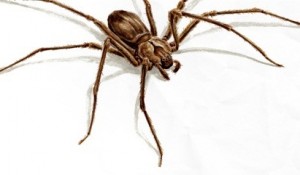 The Fiddleback is a new online bi-weekly publishing poetry, fiction, nonfiction, and reviews as well as featuring one artist and one musician/band in every issue. Founded by Jeff Simpson “during the great recession of 2010,” with “cross-pollination” The Fiddleback will be a “mixing and colliding artistic disciplines to attract a diverse readership.” Works by new as well as established writers and artists will be featured.
The Fiddleback is a new online bi-weekly publishing poetry, fiction, nonfiction, and reviews as well as featuring one artist and one musician/band in every issue. Founded by Jeff Simpson “during the great recession of 2010,” with “cross-pollination” The Fiddleback will be a “mixing and colliding artistic disciplines to attract a diverse readership.” Works by new as well as established writers and artists will be featured.
The first issue features fiction by David Hollander, Alexandra Sadinoff, and Dinah Cox; poetry, Lisa Lewis, Nate Pritts, Clay Matthews, Tom C. Hunley, Steven D. Schroeder, and Jenny Yang Cropp; nonfiction, Andrew Merton and Gina Vozenilek; music reviews and an interview with “Other Lives”; an interview with artist George Boorujy.
The Fiddleback reads year-round and is published bi-monthly.
Behind the scenes at The Fiddleback are Jeff Simpson – Founding Editor; Labecca Jones – Senior Poetry Editor; Daniel Long – Senior Fiction Editor; Brian Gebhart – Senior Fiction Editor; Jessica Hendry Nelson – Senior Nonfiction Editor; Chelsey Simpson – Senior Nonfiction Editor; James Brubaker – Senior Music Editor; and Joshua Cross – Senior Music Editor.
Spread the word!
CFS :: Women Writing on Family Anthology
Women Writing on Family: Tips on Writing, Teaching and Publishing
Book Publisher: The Key Publishing House Inc., publisher of academic and non-academic books, Toronto, Ontario
Submissions are being sought for an anthology about writing and publishing by women with experience in writing and publishing about family. Possible subjects: using life experience; networking; unique issues women must overcome; formal education; queries and proposals; conference participation; self-publishing; teaching tips. Tips on writing about family: creative nonfiction, poetry, short stories, nonfiction, novels.
Practical, concise, how-to articles with bullets/headings have proven the most helpful to readers. Please avoid writing too much about “me” and concentrate on what will help the reader. No previously published, co-written, or simultaneously submitted material.
Foreword by Supriya Bhatnagar, Director of Publications, Editor of The Writer’s Chronicle, Association of Writers & Writing Programs, George Mason University. Author of the memoir: and then there were threeŠ (Serving House Books, 2010)
Afterword by Dr. Amy Hudock, co-editor of Literary Mama chosen by Writers Digest as one of the 101 Best Web Sites for Writers. She teaches creative writing and co-edited American Prose Writers (Seal Press, 2006)
Co-Editor Carol Smallwood appears in Who’s Who of American Women, Michigan Feminist Studies, The Writer’s Chronicle. She’s included in Best New Writing in Prose 2010. Her 23rd book is Writing and Publishing: The Librarian’s Handbook (American Library Association, 2010). A chapter of newly published Lily’s Odyssey was short listed for the Eric Hoffer Prose Award; a book trailer of Contemporary American Women: Our Defining Passages is http://il.youtube.com/watch?v=8M6m7PXGQIU&feature=related
Co-Editor Suzann Holland, 2010 Winner of Public Libraries Feature Award, secured the permission of the Laura Ingalls Wilder estate for the forthcoming: The Little House Literary Companion. Her masters degrees include history, library science: she taught English composition, information literacy, at William Penn University, was a librarian at Milwaukee Public Library, a consultant in Davenport, Iowa. Her anthology contributions appear in: Greenwood Press, Neal-Schuman, the American Library Association
Please send 2-3 possible topics you would like to contribute each described in a few sentences and a 65-75 word bio using the format like the bio’s above. Please send in a .doc Word file by December 30, 2010 using FAMILY/Your Name on the subject line to smallwood@tm.net. You’ll receive a Go-Ahead and guidelines if your topics haven’t been taken. Contributors will be asked to contribute a total of 1900-2100 words. Those included in the anthology will receive a complimentary copy as compensation.
Spread the word!
CFS :: Women and Poetry Anthology
Women and Poetry: Tips on Writing, Teaching and Publishing by Successful Women Poets
Book Publisher: McFarland & Company, Inc.
Contributors needed for articles about: websites for women poets, using life experience, magazine markets, networking, managing family, blogs, unique issues women must overcome, lesbian and bisexual poetry, continuing education, queries and proposals, anthologies, conference participation, contests, promotion, self-publishing, teaching tips, and other areas women poets are interested.
Practical, concise, how-to articles with bullets/headings have proven the most helpful.
Please avoid writing too much about “me” and concentrate on what will most help the reader. No previously published, co-written, or simultaneously submitted material.
Foreword: Molly Peacock, the author of six books of poetry, including The Second Blush (W.W. Norton and Company, 2008).
Co-editor Carol Smallwood is a 2009 National Federation of State Poetry Societies award winner included in Who’s Who of American Women who has appeared in Michigan Feminist Studies, The Writer’s Chronicle. She’s included in Best New Writing in Prose 2010. Her 23rd book is Writing and Publishing: The Librarian’s Handbook (American Library Association, 2010). The first chapter of Lily’s Odyssey (2010) was short listed for the Eric Hoffer Prose Award; chapbook by Pudding House Publications; http://www.youtube.com/watch?v=8M6m7PXGQIU
Co-editor Colleen S. Harris is a 2010 Pushcart Prize nominee. Her book of poetry, God in My Throat: The Lilith Poems (Bellowing Ark Press, 2009), was a finalist for the Black Lawrence Book Award. Her second and third books, These Terrible Sacraments and Gonesongs, are forthcoming in 2011. Colleen holds an MFA degree in writing and has appeared in The Louisville Review, Wisconsin Review, River Styx, and Adirondack Review, among others. Her work has been included in Library Journal, and Contemporary American Women: Our Defining Passages.
Please send 2-3 topics you would like to contribute each described in a few sentences and a 65-75 word bio using the format of the bio’s above. Please send in a .doc Word (older version) file by December 30, 2010 using POETS/your last name on the subject line to smallwood@tm.net. You will receive a Go-Ahead with guidelines if your topics haven’t already been taken. Contributors will be asked to contribute a total of 1900-2100 words. Those included in the anthology will receive a complimentary copy as compensation.
Spread the word!
Dalkey Archive Press Holiday Sale
Today is the final day of the Dalkey Archive Press Holiday Sale: 10 books for $70 or 20 books for $125 (individual copies or multiple copies of the same book). The offer applies to all trade paperbacks and issues of the Review of Contemporary Fiction published before November 2010 (scholarly titles are not included). Free shipping in the US.
Spread the word!
Tony Hoagland’s Appeal on behalf of Dean Young
If you are reading this, you are probably a friend of Dean Young and/or a friend of poetry. And you may have heard that our friend is in a precarious position. Dean needs a heart transplant now. He also needs your assistance now.
Over the past 10 or 15 years, Dean has lived with a degenerative heart condition–congestive heart failure due to idiopathic hypotropic cardiomyopathy. After periods of more-or-less remission, in which his heart was stabilized and improved with the help of medications, the function of his heart has worsened. Now, radically.
For the last two years he has had periods in which he cannot walk a block without resting. Medications which once worked have lost their efficacy. He is in and out of the hospital, unable to breathe without discomfort, etc. Currently, Dean’s heart is pumping at an estimated 8% of normal volume.
In the past, doctors have been impressed with his ability to function in this condition. But now things are getting quickly worse. Dean has been placed on the transplant list at Seton Medical Center Austin, and has just been upgraded to a very critical category. He’s got to get a heart soon, or go to intermediate drastic measures like a mechanical external pump.
Whatever the scenario, the financial expenses, both direct and collateral, will be massive. Yes, he has sound health insurance, but even so, he will have enormous bills not covered by insurance–which is where you can help, with your financial support.
If you know Dean, you know that his non-anatomical heart, though hardly normal, is not malfunctioning, but great in scope, affectionate and loyal. And you know that his poetry is what the Elizabethans would have called “one of the ornaments of our era”–hilarious, heartbreaking, courageous, brilliant and already a part of the American canon.
His 10-plus books, his long career of passionate and brilliant teaching, most recently as William Livingston Chair of Poetry at the University of Texas at Austin; his instruction and mentorship of hundreds of younger poets; his many friendships; his high, reckless and uncompromised vision of what art is: all these are reasons for us to gather together now in his defense and support.
Joe Di Prisco, one of Dean’s oldest friends, is chairing a fundraising campaign conducted through the National Foundation for Transplants (NFT). NFT is a nonprofit organization that has been assisting transplant patients with advocacy and fundraising support since 1983.
If you have any questions about NFT, feel free to contact the staff at 800-489-3863. You may also contact Joe personally at jdiprisco@earthlink.net.
On behalf of Dean, myself, and the principle of all our friendships in art, I ask you to give all you can. Thanks, my friends.
Yours,
Tony Hoagland
You can help.
To make a donation to NFT in honor of Dean, click here. If you’d prefer to send your gift by mail, please send it to the NFT Texas Heart Fund, 5350 Poplar Avenue, Suite 430, Memphis, TN 38119. Please be sure to write “in honor of Dean Young” on the memo line.
Thank you for your generosity!
Patient Health Institute: Seton Medical Center
Spread the word!
Children’s Books :: Baxter, the Pig Who Wanted to Be Kosher
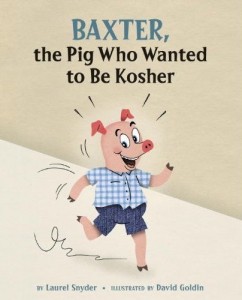 Just when you thought you’d read ’em all: Baxter, the Pig Who Wanted to Be Kosher.
Just when you thought you’d read ’em all: Baxter, the Pig Who Wanted to Be Kosher.
Author Laurel Snyder is joined by artist David Goldin in this newest of her books and novels for children. I first met Laurel about six years ago at a FLAC conference, and her energy and enthusiasm left an indelible mark in my memory. This book brought back a rush of those memories, as I could almost hear the joyful nature of her voice across every page.
Baxter, yes a pig in a human world, in a chance encounter with a man at a bus stop, hears about Shabbat dinner – the candles, the dancing, the singing. Baxter can’t stop thinking of it as the week progresses and returns to the bus stop to find out how he can become “a part of” Shabbat dinner. Of course, a different stranger he encounters at the stop tells Baxter he can’t be “a part” of the dinner because he’s “not kosher.”
Not knowing what this means, Baxter sets out to become kosher, each time based on comments from a stranger he meets. First he eats (too many) pickles, then eats (too much) challah, and finally tries to become a cow by eating clover and wearing horns. All of this comes to an end when he meets Rabbi Rosen at the bus stop, who explains to him what kosher means – and Baxter’s shock at the realization that if he were kosher, he’d be eaten! Grateful he is NOT kosher, he takes up Rabbi Rosin’s invitation to attend shabbat at her home and enjoys all he had been longing for – including eating (too much) kugel.
By title alone, this book is a curiosity. Reading it is pure delight as Snyder quickly develops Baxter’s personality as curious, eager to learn, and wanting so badly to belong. The story is supplemented with a brief glossary at the end, which continues the story in Synder’s voice, such as this entry for rabbi: “learned, generous Jewish leader who devotes time to reading, thinking, teaching, and helping people (and pigs!). Rabbis often tell wonderful stories, wear hats, and have nice laugh wrinkles.”
Goldin’s illustrations and Synder’s text are well balanced. Golin’s illustrations are a mixed media, including photographs with drawings. Baxter pants and shirt are photographed images of cloth, the food – such as whitefish salad, knish, pickled eggs, and challah – are also photographs. This blend is engaging for children, who can recognize the difference and enjoy the “reality” of some of the images in the story. There are full color illustrations on every page, some full bleed, some insert, each busy enough to entertain readers with new discoveries in multiple readings.
Spread the word!
Terrance Hayes Edits Ploughshares
The newest issue of Ploughshares (Winter 2010-11) is edited by Terrance Hayes, who also write the introduction to the issue (“Introduction: The Sentenced Museum” full-text online). Also included in the print issue is the profile “About Terrance Hayes” by Robert C. Casper.
Spread the word!
Call for Submissions—Young Writers
“If you are a teenager currently enrolled in high school, grades 9-12, Crashtest, the new online literary magazine for high school writers, would like to hear from you! Crashtest publishes poetry, stories and creative non-fiction in the form of personal essays, imaginative investigation, experimental interviews, or whatever else you would like to call it. We’re looking for writing that has both a perspective and a personality. We’re looking for authors who have something to say.” From Sarah Blackman, Director of Creative Writing, Fine Arts Center, Greenville, SC
Deadline for submissions April 15, 2011
Spread the word!
Apply Now for Cali Poet Laureate
The application for California Poet Laureate is now open. The submission deadline is February 1, 2011.
Spread the word!
Poetry Q&A Issue and Online Educational Resources
 The December 2010 issue of Poetry is a special “Question and Answer issue” with Michael Robbins, Paula Bohince, Tom Pickard, John Tranter, Charles Baxter, Jane Hirshfield, Clemente R
The December 2010 issue of Poetry is a special “Question and Answer issue” with Michael Robbins, Paula Bohince, Tom Pickard, John Tranter, Charles Baxter, Jane Hirshfield, Clemente R
Spread the word!
Books :: For the Cook on Your List (Yourself Included)
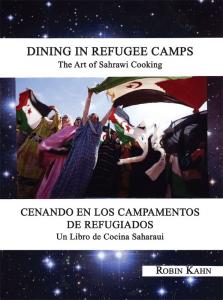 Dining in Refugee Camps: The Art of Sahrawi Cooking
Dining in Refugee Camps: The Art of Sahrawi Cooking
Cenando en los Campamentos de Refugiados: Un Libro De Cocina Saharaui
by Robin Kahn
From the publishers site: “A full-color, bilingual, collage journal that documents Robin Kahn’s month cooking with the women of the Western Sahara. As a guest artist selected to participate in ARTifariti 2009, Kahn stayed with Sahrawi families living in refugee camps in Algeria and in the desert of The Free Territories of the Western Sahara. There she created the collages for this publication by combining the sparse materials available locally with photos, recipes, histories and drawings. The result is a 50-page full-color journal that examines the art of Sahrawi food production: how kitchens are improvised, food is procured and prepared, and traditional recipes are innovated from UN rations and international aid. The book is a testament to the daily struggles of Sahrawi women whose role is to provide sustenance, fortitude and comfort inside a compromised society.”
Spread the word!
Hayden’s Ferry AWP Intro Award Winners
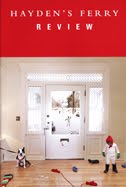 Hayden’s Ferry Issue 47 (Fall/Winter 2010-2011) includes the winners of the AWP Intro Awards: M.X. Wang for his story (fiction) “With Consideration and Care” and Jenn Bazzell for her poem “Wet Field.”
Hayden’s Ferry Issue 47 (Fall/Winter 2010-2011) includes the winners of the AWP Intro Awards: M.X. Wang for his story (fiction) “With Consideration and Care” and Jenn Bazzell for her poem “Wet Field.”
Spread the word!
Anita Shreve :: Literary Fiction is Written by Men
“A book editor once had the gall to tell the popular American novelist Anita Shreve that literary fiction is written by men. What women write is women’s fiction. Her retort started with Alice Munro and went on from there.”
…
“A large part of writing is daydreaming. We all do it,” says Shreve, who confesses to occasionally missing her exit when driving. “You are rehearsing a conversation you had last night, and you are going to change the dialogue a bit so it comes out right, or you imagine what you are going to say when you get home. The only difference with a writer is a writer loves the challenge of structure and crafting sentences.”
Read the rest Profile on Anita Shreve: “You don’t sit waiting for the muse to come” by Kate Taylor (Globe and Mail)
Spread the word!
Film :: Little Town of Bethlehem
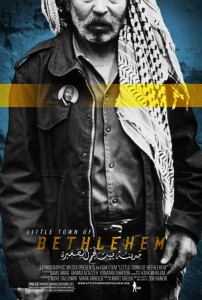 Little Town of Bethlehem is a groundbreaking new documentary that shares the gripping story of three men — a Palestinian Muslim, a Palestinian Christian, and an Israeli Jew — born into violence and willing to risk everything to bring an end to violence in their lifetime.
Little Town of Bethlehem is a groundbreaking new documentary that shares the gripping story of three men — a Palestinian Muslim, a Palestinian Christian, and an Israeli Jew — born into violence and willing to risk everything to bring an end to violence in their lifetime.
Sami Awad is a Palestinian Christian whose grandfather was killed in Jerusalem in 1948. Today he is the executive director of Holy Land Trust, a non-profit organization that promotes Palestinian independence through peaceful means. Yonatan Shapira is an Israeli Jew whose grandparents were Zionist settlers who witnessed the birth of the Israeli nation. Today he is an outspoken advocate for the nonviolent peace movement, both in his homeland and abroad. Ahmad Al’Azzeh is a Palestinian Muslim who has lived his entire life in the Azzeh refugee camp in Bethlehem. Today, Ahmad heads the nonviolence program at Holy Land Trust, where he trains others in the methods of peaceful activism.
Little Town of Bethlehem was produced by EthnoGraphic Media (EGM), an educational non-profit organization exploring the critical issues of our time. Copies of the film are available for half price through December. Screening copies with full screening kits are available for schools, churches, clubs, groups, or local theaters.
Spread the word!
Domestic Violence PSA
Spread the word!
Wallace Stevens Moves to John Hopkins
Effective January 2011, John Hopkins University Press will assume all aspects of managing and publishing The Wallace Stevens Journal for the Wallace Stevens Society. A new editorial team as well as readers will be put into place for upcoming issues.
Spread the word!
Memoir (and) on Pants on Fire
 In her Editorial Board Chair’s Note to the newest issue (v3 n2) of Memoir (and), Claudia Sternbach comments on (re)reading Frank McCourt’s Angela’s Ashes:
In her Editorial Board Chair’s Note to the newest issue (v3 n2) of Memoir (and), Claudia Sternbach comments on (re)reading Frank McCourt’s Angela’s Ashes:
“But as popular as the life story of McCourt is, there are those who take issue with it. Those who question McCourt’s ability to recall in such great detail events which took place decades ago. How could he remember which of his brothers begged for berries or the look on his mother’s face when she had to plead for an egg or the head of a pig for her children to eat at Christmas.
“These are fair questions. If I can’t remember what I had for dinner last night or whether I recharged my cell phone this morning, how can a writer sit down at his desk and starting with words, build sentences, paragraphs, pages, and finally an entire life story like a bricklayer constructs a solid house? And would a reader trust the construction?
“We have been taken a few times, I’ll admit. Well-regarded memoirists have turned out to be not so honest. Their pants burst into flames and it makes news. But I believe it makes news because it is rare. For the most part I believe when people sit down to tell their story, they do their best to tell it with truth. Their truth. And that is the key. They are communicating to the reader what they remember. They are spilling out on the page those images and sounds they have carried with them their entire lives.”
Exactly.
Spread the word!
Chad Walsh Poetry Prize Winner
 Charles Wyatt of Nashville, Tennessee, is the 2010 winner of the Beloit Poetry Journal’s annual Chad Walsh Poetry Prize. The editors of the BPJ select on the basis of its excellence a poem or group of poems they have published in the calendar year to receive the award. This year’s choice is a group of poems from “Thirteen Ways of Looking at Wallace Stevens” that appeared in the Spring 2010 issue. The awarding of this year’s prize to Wyatt also gives the journal the opportunity to recognize the extraordinary body of his work it has published beginning in 1965.
Charles Wyatt of Nashville, Tennessee, is the 2010 winner of the Beloit Poetry Journal’s annual Chad Walsh Poetry Prize. The editors of the BPJ select on the basis of its excellence a poem or group of poems they have published in the calendar year to receive the award. This year’s choice is a group of poems from “Thirteen Ways of Looking at Wallace Stevens” that appeared in the Spring 2010 issue. The awarding of this year’s prize to Wyatt also gives the journal the opportunity to recognize the extraordinary body of his work it has published beginning in 1965.
Spread the word!
Allison Joseph Tribute
 Volume 4 (2010) of Reverie: Midwest African American Literature includes a special tribute to Allison Joseph, Aquarius Press Legacy Award Recipient. Several of Joseph’s poems are featured in addition to an interview by Curtis L. Crisler and tribute poems by Van G. Garrett and Phillip Williams.
Volume 4 (2010) of Reverie: Midwest African American Literature includes a special tribute to Allison Joseph, Aquarius Press Legacy Award Recipient. Several of Joseph’s poems are featured in addition to an interview by Curtis L. Crisler and tribute poems by Van G. Garrett and Phillip Williams.
Spread the word!
I-90ers – Submit to Sean Thomas Dougherty
Sean Thomas Dougherty (Broken Hallelujahs, and Sasha Sings the Laundry on the Line both from BOA Editions) will be the guest editor for Redactions: Poetry & Poetics issue 14 the I-90 Revolution. “It’s I-90 becuase I-90 runs the breadth of the country. It’s 3,099.07 miles long and runs from Boston to Seattle,” writes editory Tom Holmes. “…we are inviting people who live within 50 miles of I-90 to submit poems. Make sure you first read the I-90 Manifesto…then send in your poems that are written in the spirit of the I-90 Manifesto.” Non-I-90ers are also welcome to submit their works.
Spread the word!
Pongo Receives Microsoft 25k Fellow
Congratulations to Pongo Teen Writing Project founder Richard Gold for being awarded the Microsoft Integral Fellow. Pongo will receive a $25K financial award and has the promise of significant support from the Microsoft Alumni Foundation and from Gold’s fellow Microsoft alumni in the coming year.
Spread the word!
Open Minds Poetry Contest HM
The Fall 2010 issue of Open Minds Quarterly: Your Psychosocial Literary Journal includes the honorable mentions of the 2010 BrainStorm Poetry Contest. This is the eighth annual poetry contest for mental health consumers and include works by Catherine Martell, Eufemia Fantetti, Zan Bockes, Kate Flaherty, Anthony Chalk, Mark Murphy, E.V. Noechel, Brock Moore, Christopher Gaskins, Lisa Morris, Jerome Frank, Debrenee Adkisson, Gail Kroll, Diane Germano, Carla E. Anderton, Monika Lee, John Parsons, and Robin Barr Hill.
Spread the word!
Pirate Talk or Mermalade
Put aside any expectations of swashbuckling that this title might inspire. Pirate Talk or Mermalade has its share of cutlasses, of peg legs, of sailors marooned on desert isles. But it is far from a typical pirate tale. Described as a “novel in voices,” the story is told entirely in dialogue. No quotation marks, no helpful tag lines (i.e. he said, she replied): each page is simply the conversation, with an indentation serving as the indication that the speaker has shifted. At first, I thought the “only dialogue” rule would limit the scope—where would the description be? The thought and reflection?—but within a few pages, it was apparent that Svoboda is a masterful writer and is no more constrained by this selection of form than a poet is constrained by composing a sonnet: the novel delights because of this rule, succeeds because of this confinement. Continue reading “Pirate Talk or Mermalade”
Spread the word!
The Creative Writer’s Survival Guide
In his new book, The Creative Writer’s Survival Guide: Advice from an Unrepentant Novelist, John McNally gives an honest and highly informative account of his experiences in the writing/publishing industry. As he cautions his readers in the introduction entitled “The Writer’s Wonderland—Or: A Warning,” this book is not an instruction manual on how to write short stories, it’s not a place to seek writing prompts, and the author does not claim to have a formulaic answer to getting published. Rather, he explains: Continue reading “The Creative Writer’s Survival Guide”
Spread the word!
Muted Lines from Someone Elses Memory
The mind is a smelly heap of compost comprising our greatest hopes, delusions and sexual fantasies about robots. We explain its function with analogies to computers or other machines, trying to impose a structure on a ghost. So when our bodies and minds start to fail, we panic. We grope about in the dark for a user's manual, a crossword puzzle or anti-depressant that will put our brains in the order that we suppose it should have. Seth Berg explores this dark space in his first book of poems, Muted Lines from Someone Else's Memory. Continue reading “Muted Lines from Someone Elses Memory”
Spread the word!
God on the Rocks
For fans of Jane Gardam’s Old Filth and The Man in the Wooden Hat, God on the Rocks, a 1978 Booker Prize finalist, will satisfy. As Gardam wrote in the November 20, 2010 Op-Ed article “Richard’s Glove, Kate’s Hand” (which gives an historical perspective to Kate and Prince William’s upcoming wedding), “In my novels I write about the ‘old world,’ my parents’ world, where people wore hats—and gloves.” But “the old world is not so far away from this one.” Therefore, this novel, set along the northern English coast in 1938, between the world wars, is not chronological but jumps back and forth between different characters’ perspectives and pasts. In a book both humorous and tragic, the reader has to read carefully to notice switches in perspective and Gardam’s parceling out of information during the unfolding of fully defined lives. Continue reading “God on the Rocks”
Spread the word!
Indexical Elegies
I adore Coach House Books. The book design is smart, inventive, spot on. Poetry is clever, original, risky, inspiring. You want to go back to these books again and see them as if new each time you pick them up. You’re happy to give them to others, to show them off. You return to them as, and I am not exaggerating, a reason to keep going on. And on. A reason to read. A reason to write. A reason to believe in poetry. Even, maybe especially, when they are difficult (emotionally or intellectually or in a reader-ly way). Continue reading “Indexical Elegies”
Spread the word!
The Patterns of Paper Monsters
Emma Rathbone’s debut novel The Patterns of Paper Monsters is about Jacob Higgins, an angry kid incarcerated in a juvenile detention center. But like any great book, this one can’t be reduced to its plot. Its magic lies in the sarcasm that drools from its narrator’s voice and in the beauty of the way that voice strings together language. Listen, as Jacob describes the crime that landed him in the JDC: Continue reading “The Patterns of Paper Monsters”

